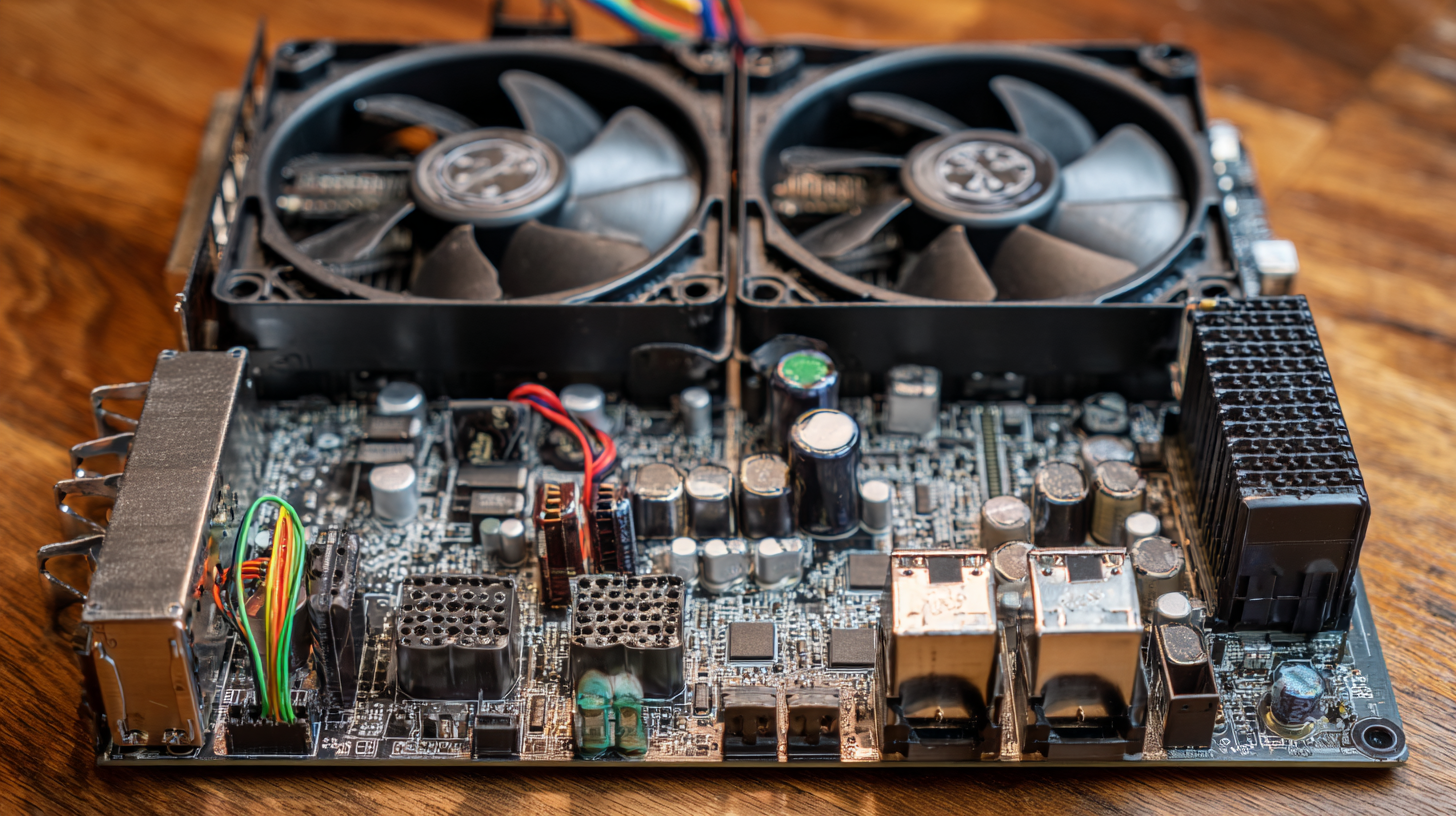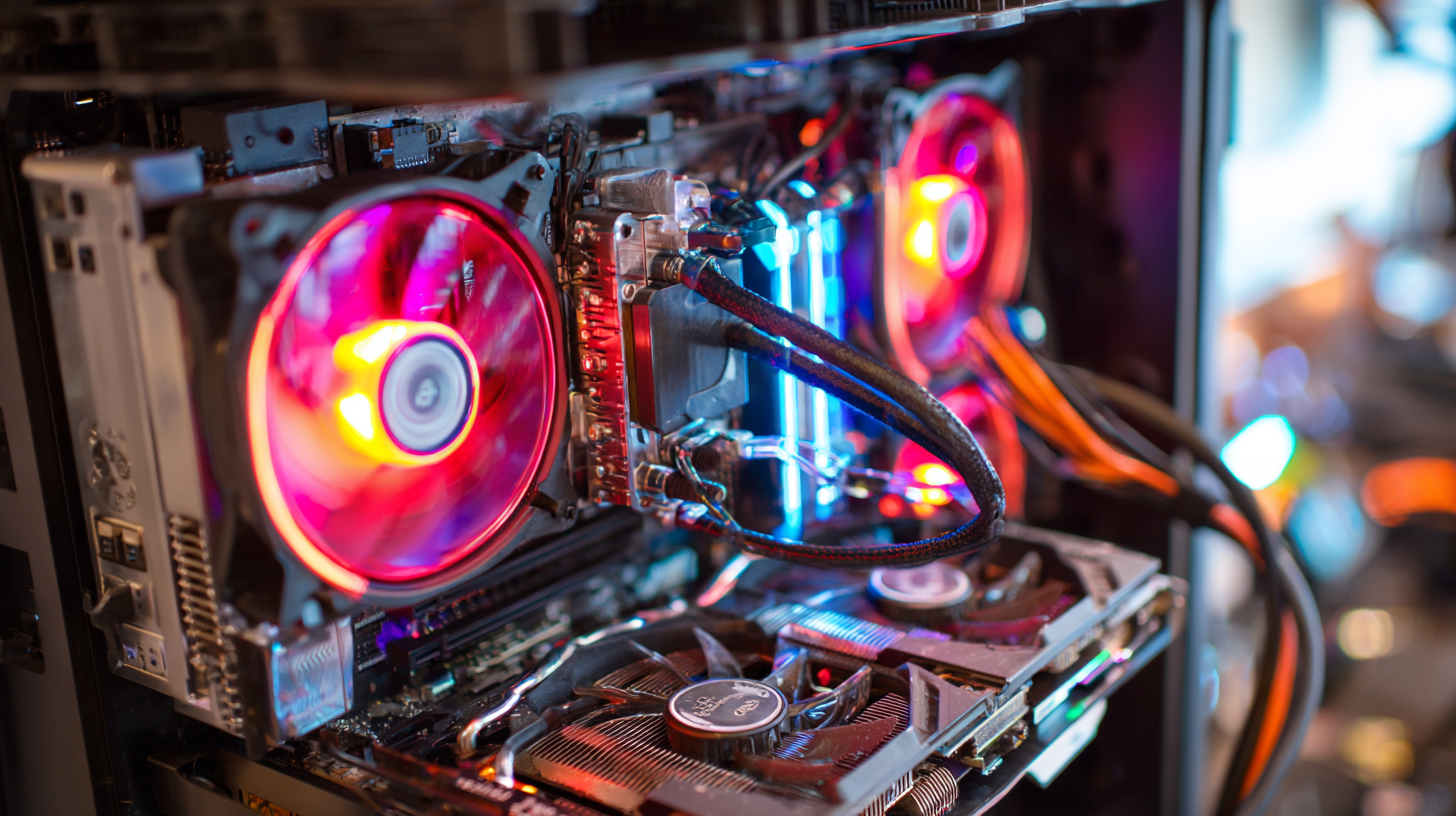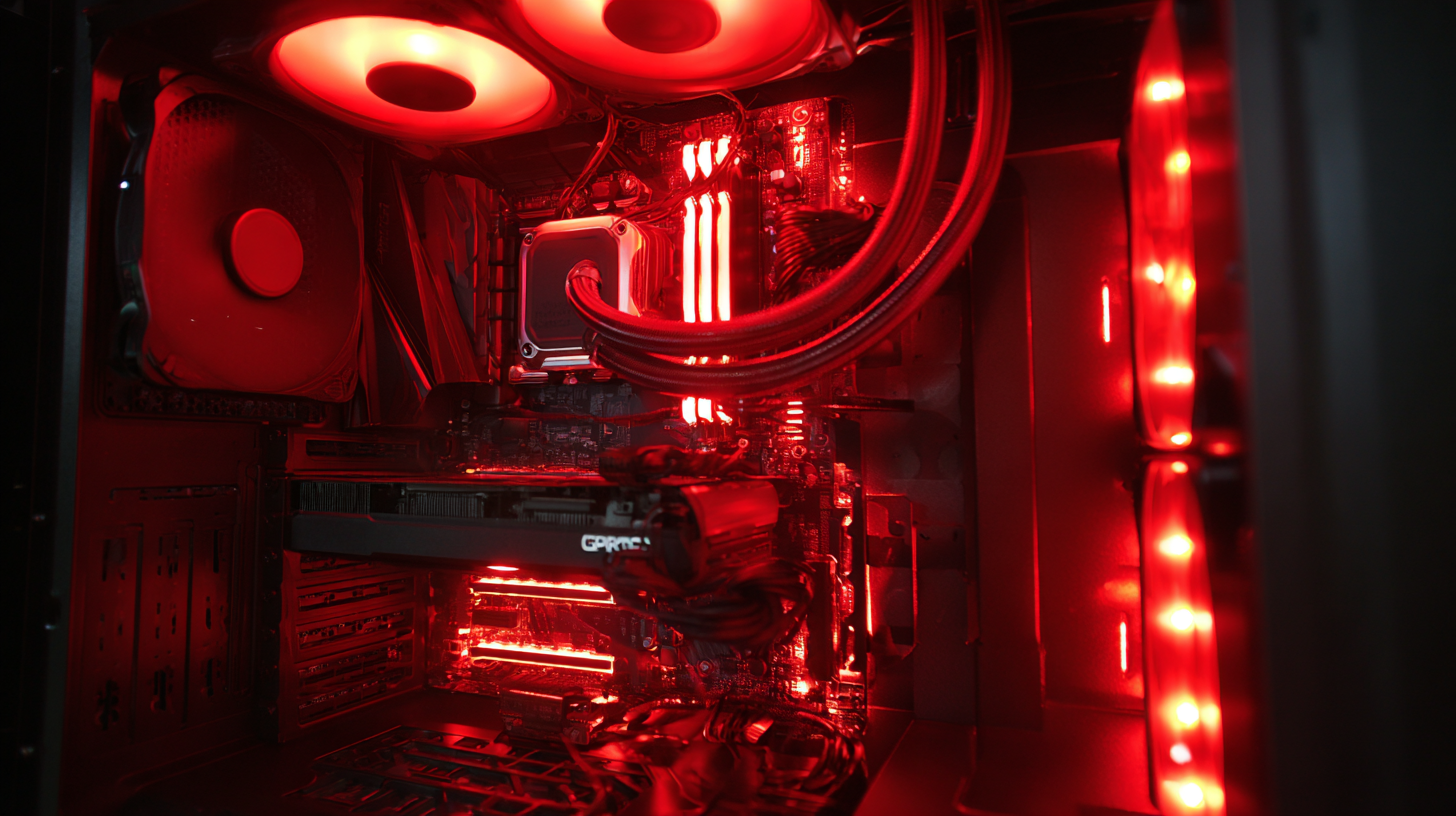Leave Your Message
- Phone
- E-mail
- Whatsapp


In the rapidly evolving world of PC hardware, selecting the right PC Power Supplies is a crucial decision for both enthusiasts and casual users alike. As the backbone of any computer system, power supplies not only provide the necessary power for components but also ensure stability and efficiency, making them a critical aspect of any build. With various types of PC Power Supplies available on the market, including modular, non-modular, and semi-modular options, understanding these distinctions is essential for making an informed purchase. This guide aims to offer global buyers a comprehensive comparison of the best PC Power Supplies available, highlighting key insights into industry production standards and what type suits different needs and preferences. Whether you're building a gaming rig or a workstation, choosing the right power supply can significantly impact your system's performance and longevity.

When selecting a PC power supply, several key factors must be prioritized to ensure optimal performance. First and foremost, the wattage rating is critical. It's essential to choose a power supply that not only meets the minimum requirements of your components but provides additional headroom for upgrades or overclocking. A reliable power supply should typically deliver 20-30% more wattage than your system demands to maintain efficiency and longevity.
Efficiency rating is another important consideration. Look for power supplies that are certified with an 80 Plus rating, which indicates that the unit operates at a minimum efficiency of 80% under typical loads. Higher ratings like Gold or Platinum offer even better efficiency, reducing energy costs and heat output. Additionally, pay attention to the quality of the internal components, as this will influence the longevity and stability of the power supply. Investing in a product from reputable brands with robust customer reviews can lead to a more reliable and satisfying performance in your PC build.
When it comes to selecting the best PC power supplies, efficiency ratings and reliability are paramount. According to the 2022 80 PLUS Power Supply Certification reports, over 80% of the market's top-rated power supplies achieved at least 80 PLUS Bronze certification, indicating they operate at a minimum of 82% efficiency at typical loads. This benchmark is crucial for gamers and professionals who rely on powerful systems, as a higher efficiency rating not only reduces energy costs but also minimizes heat production, enhancing the longevity of components.

Additionally, top brands such as Corsair, EVGA, and Seasonic have consistently received accolades for both their efficiency and reliability. A recent study from Tom's Hardware highlighted that Seasonic units have a failure rate of just 2.5%, making them one of the most trusted names in the industry. Comparatively, EVGA holds a solid standing with an impressive range of 80 PLUS Gold and Platinum certified units that are favored for their balance between performance and power efficiency, further underscoring that investing in a reputable power supply is essential for maintaining system stability and performance.
When building or upgrading a PC, understanding wattage requirements is crucial to ensure your system runs efficiently. The total wattage needed depends on the components you choose, including the CPU, GPU, storage drives, and peripherals. Each part has a specific power demand, and when combined, they contribute to the overall load on your power supply unit (PSU). To calculate your requirements, consider using online wattage calculators, which can help you estimate how much power you’ll need based on your configuration.
Additionally, it's wise to account for future upgrades and the potential for overclocking. Choosing a PSU with a higher wattage rating than your current needs can provide flexibility down the road, accommodating new hardware or expansions without needing to replace the power supply. It's also important to consider the efficiency rating of the PSU, as this impacts the amount of energy consumed and how heat is generated within your system. Ultimately, selecting the right wattage not only ensures the stability of your PC but also prolongs the lifespan of your components.

When selecting a power supply unit (PSU) for your PC, understanding the significance of certification is crucial. The 80 PLUS certification program evaluates the efficiency of power supplies at various load levels. An 80 PLUS certified PSU guarantees at least 80% energy efficiency at 20%, 50%, and 100% of rated loads, which can lead to significant savings on electricity bills over time. According to a report by the Natural Resources Defense Council (NRDC), using an efficient power supply can save consumers up to $100 over the lifespan of the PSU, while also reducing carbon emissions.
Tip: Always check for the specific 80 PLUS rating, as these range from 80 PLUS Bronze to Platinum and Titanium levels. Higher ratings indicate better efficiency, with Titanium units surpassing 90% efficiency at typical gaming loads. Such efficiency not only benefits the environment but also minimizes heat output, which can prolong the lifespan of your hardware.
Additionally, the choice of a PSU impacts overall system performance. A reliable power supply can stabilize voltage and improve component longevity. Studies indicate that systems powered by high-quality PSUs experience lower failure rates, highlighting the importance of investing in a well-reviewed, 80 PLUS certified unit. Look for brands that consistently perform well in industry reports to ensure you're making a wise choice for your PC build.
This chart compares the efficiency ratings of various 80 PLUS certifications for PC power supplies. The percentage indicates the efficiency at 100% load, showcasing how higher certification levels provide better efficiency, leading to reduced energy costs and lower heat output.
As the technology landscape evolves, the choice between modular and non-modular power supplies becomes increasingly critical for consumers seeking efficiency and performance. Modular power supplies allow users to connect only the cables they need, resulting in cleaner builds and improved airflow. This flexibility not only simplifies installations but also enhances overall system performance, which is vital in an era marked by surging demand for powerful computing systems, particularly in AI and data centers.
When considering a power supply, it’s essential to assess the growing trend towards sustainability and energy efficiency. Many modern power supplies are designed to meet higher efficiency standards, reducing energy consumption and lowering the carbon footprint. Investing in energy-efficient products can significantly benefit both your wallet and the environment in the long run.
Tip: Opt for power supplies that feature an 80 PLUS certification, indicating high efficiency at various loads. Additionally, keep an eye on emerging technologies that enhance performance, such as advanced cooling methods and smart power management features, which can further optimize your system's energy use.
